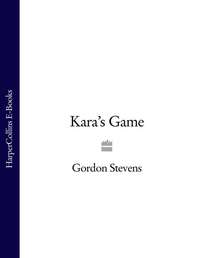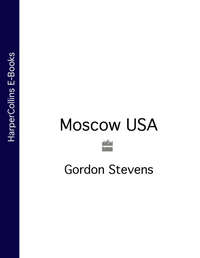
Полная версия
Kennedy’s Ghost
They came to the conference room.
‘Rooms are allocated according to seniority and positions held. Senator Donaghue is on three committees and chairs a subcommittee of Banking, hence he gets this.’
If Donaghue’s nearing the end of his second term and he’s on so many committees, then why doesn’t he get a modern suite in one of the two new buildings, Haslam thought.
They were back in Pearson’s room. The AA opened the door to the left of his desk and showed him through.
The third door from the corner, Haslam calculated, therefore Room 394.
The room was rectangular, the shortest side to their left as they entered, and the windows in it looked on to the central courtyard. The walls were painted a soothing pastel and hung with paintings and photographs. The Senator’s desk was in front of the window, with flags either side. In the centre of the wall opposite the door through which they had just entered, was a large dark green marble fireplace. At the end of the room furthest from the window was a small round conference table, leather chairs round it; in the corner next to it stood a walnut cabinet containing a television set and minibar, a coffee percolator on top.
The desk by the window was antique, the patina of the years giving it a soft appearance. The top was clear except for a telephone and a silver-framed family photograph – Donaghue, a woman presumably his wife, and two girls. On the front of the desk was a length of polished oak, the face angled, on which were carved three lines:
Some men see things as they are and say why;
I dream things that never were and say why not.
ROBERT KENNEDY, 1968
The inner sanctum, Haslam thought. ‘May I?’ he asked.
‘Of course,’ Pearson told him.
Haslam walked round the room, looking at the paintings then at the photographs, and stopped at the two above the fireplace.
The first, in black and white and of World War Two vintage, was of two young men in the uniforms of naval lieutenants; in the background was a PT boat.
‘I recognize Kennedy. Who’s the other man?’
‘A friend of the Senator’s father,’ Pearson explained. ‘He was to be the Senator’s godfather, but was killed in action before Donaghue was born.’
The second photograph, this time in colour, was of a young Donaghue, also dressed in naval uniform, and the citation beside it was for bravery, the date fixing it in the Vietnam War.
To the right of the fireplace were another set, plain and simple: Donaghue as a small boy, Donaghue at school, Donaghue at Harvard, Donaghue with the woman in the family photograph on his desk.
The print next to them was black and white and had been blown up, so that its images were slightly grainy. The photograph was of mourners at a funeral and there was a tall, good-looking woman in the second row. She seemed deeply distressed. Her head was bent slightly, as if she was listening to someone on her right who was obscured by the mourners in the front row, but her eyes were fixed rigid and staring straight ahead.
They left the room and returned to Pearson’s.
‘Interesting photos,’ Haslam suggested. ‘Almost the story of Donaghue’s life, except that I don’t understand some of them.’
‘How’d you mean?’
‘Vietnam, for example. I thought he opposed the war.’
Pearson nodded. ‘There’s something you should understand about Jack Donaghue.’ He settled at his desk, swung his feet up and held the coffee mug in his lap, Haslam opposite him. ‘Some would say Donaghue is an enigma: of the Establishment but against it. The fact that he’s against it makes him a good Senator, the fact that he’s from it makes him an effective one.’
‘How’d you mean?’
‘Jack Donaghue’s background is Boston Irish.’ It was in line with the PR tour – nothing said that wasn’t on a cv or in a file somewhere, nothing controversial or private. ‘Privileged upbringing, Harvard of course, which was where his politics began.’
‘How?’ Haslam asked.
‘It was at Harvard that Donaghue first declared his opposition to the Vietnam War.’
‘So why the photo of him in uniform? Why the awards for bravery?’
‘As some would say, Jack’s an enigma.’ Pearson switched easily between first and second names. ‘He opposed the war yet at the same time felt a duty to his country. Others dodged the draft or used their connections to get safe postings, but when Jack’s number came up he did neither. Ended up commanding a Swift boat, doing runs up the deltas. He was awarded a couple of Bronze Stars, plus a Silver Star. Apparently he might have been up for a Navy Medal, even a Medal of Honor, but hinted that he would turn it down. Said he was being considered because of his connections, and that everyone on his boat deserved an award and not just him.’
‘What was that for?’
Pearson looked down at the coffee mug. ‘He doesn’t talk about it much. Seems some recon guys were holed up on a river bank, heavy casualties and surrounded by NVA. The choppers couldn’t reach them and they were finished. Donaghue got them out, though he himself was wounded.’
Except if Donaghue got a Silver Star and was up for a Navy Medal or a Medal of Honor, there was more to it than that, Haslam thought. ‘After Vietnam?’ he asked.
‘Law school. Legal practice, then assistant District Attorney. All this time arguing that we should pull out of Vietnam, but at the same time fighting for veterans’ rights.’
‘Then?’
‘Two terms in the House of Representatives.’ Which was when Pearson had met him, when Pearson had become his alter ego. ‘Now in his second term in the Senate. Outstanding record since his first day in DC.’ Pearson smiled. ‘Which I’m bound to say, of course. Supports industrial development but not at the expense of the environment. Believes in budget control but not at the expense of things like health care. Sees the need for a strong national economy but not at the expense of the Third World.’
Haslam remembered the photograph on the desk. ‘Family?’
‘Jack met Cath at Harvard. She’s a lawyer, specializes in human rights. They have two girls, both at Sidwell Friends.’
So now you know Jack Donaghue – it was in the way Pearson stopped talking, the way he put the coffee mug on the desk.
‘And from here?’
Pearson laughed and stood up, looked out the window. The door from reception opened and Donaghue came in, followed by an aide. He was taller than Haslam had expected, leaner face and steel-grey hair.
‘Senator, may I introduce Dave Haslam from England. Dave’s a friend of Quince Jordan and Mitch Mitchell.’
‘Good to meet you.’ The handshake was firm. Behind Donaghue the secretary and aide were reminding both him and Pearson that they were due somewhere else ten minutes ago.
Sorry – Donaghue’s shrug said it – have to go. He held out his hand again. ‘As I said, good to meet you.’ The eyes were unwavering. If Donaghue runs for the Democrat nomination he’ll get it, Jordan had said over lunch. And if Donaghue gets the nomination, he’s the next president. Donaghue turned and left the room, the aide trying to keep up.
Pearson held out his hand. ‘Stay in touch.’
By the time Haslam reached the corridor it was already empty. He walked to the ground floor, found a set of pay phones, called the apartment and activated the answer phone. There were three messages on it, two asking him to call about security consultations and the third from Mitchell inviting him to beer and barbecue at the Gangplank.
Donaghue’s last formal meeting on the Hill that evening ended at six. At six-fifteen, and accompanied by an aide, he attended a cocktail party thrown by one of the lobby groups, at seven a second. It was the standard ending to a standard day. At seven-thirty he drove to the University Club on 16th, between L and M. The building was six-storey red brick, with a small drive-in in front. In the daytime the street would have been lined with cars bearing diplomatic plates from the Russian Federation building next door, the parking tickets plastered over their windscreens always ignored. In early evening, however, the only vehicle was a patrol car of the uniformed division of the Secret Service, the White House emblem on the side and the driver slouched in his seat and reading a Tony Hillerman.
Donaghue parked the Lincoln in one of the bays and went inside.
The atmosphere was refined yet relaxed – the University Club had long enjoyed a more liberal reputation than others in town. The main dining-room was on the left, and the library and reading-room on the right, behind the reception desk. On the first floor was another set of rooms, one of which he had hired for his fortieth birthday party, plus a more informal restaurant, and the bedrooms were on the floors above.
He smiled at the receptionist, spent three minutes talking to a group of other members, then went to the fitness rooms in the basement. Even here the upholstery was leather. He collected a towel, stripped, hung his clothes in a locker, took a plunge in the pool, and went into the sauna.
Tom Brettlaw arrived two minutes later.
Brettlaw’s day had begun at seven. At seven-thirty the inconspicuous Chevrolet had collected him from the family home in South Arlington and driven him the fifteen minutes to Langley. The only clue to its passenger was the greenish tinge of the armoured windows and the slight roll of the chassis. The guard on the main gate was expecting him. The driver turned the car past the front of the greyish-white concrete building, down a drive beneath it, and into the inner carpark. Brettlaw collected his briefcase and took the executive lift to his office on the top floor.
The head of the CIA – the Director of Central Intelligence – is a presidential appointment, as is his deputy, normally a serving military officer. Beneath the deputy are five Deputy Directors, all career intelligence officers. Of these the most powerful is the DDO, the Deputy Director of Operations, the man in effective control of all CIA overt and covert operations throughout the world. For the past four years Tom Brettlaw had been DDO.
His office was spacious: two windows, both curtained, a large desk of his own choosing with a row of telephones to his left and a bank of television screens in front. The leather executive chair behind the desk was flanked by the Stars and Stripes and the Agency flag, and the walls were hung with photographs of Brettlaw meeting prominent politicians, most of them heads of state. The mantelpiece of the marble fireplace was filled with the mementos given by the heads of those foreign intelligence services with whom he had liaised over the years, and the floor was covered by a large and expensive Persian rug. To the left of the main room was a private bathroom. In the area of the room to the right of his desk was a conference table, chairs placed neatly round it, and in the bookcase along on the wall to the left of the door was concealed a minibar. During his street days Brettlaw had done his time in the jewel of the CIA crown, the Soviet division, heading it before his promotion to DDO. It was a background he did not allow to pass unnoticed. Even before the collapse of the Soviet empire, those in the division noted with satisfaction, Brettlaw had always made a point of offering visitors a beer, and suggesting they tried a Bud. Not the Budweiser from the US corporation bearing the name, but a Budvar from the Czech Republic. Failing that a Zhiguli from the Ukraine.
The report from Zev Bartolski had come in overnight, for his eyes only and requiring him to decrypt it personally.
Brettlaw and Bartolski had joined the Outfit at more or less the same time, done their field training together at The Farm, their explosives and detonation training together. Worked together in the Soviet division when the going was rough and the shit was hitting the fan. Shared everything, the risks on the way in and the rewards on the way out. Which was why Zev Bartolski was now Chief of Station in Bonn.
By eight Brettlaw had finished the decrypt and locked the report in the security safe; at eight-fifteen he was briefed on global developments in the past twelve hours. At eight-thirty he held his first meeting with his divisional heads, at nine-thirty his regular conference – when both men were available – with the Director of Central Intelligence, the DCI. From ten to eleven-thirty he conducted a further series of meetings with his divisional heads, plus section heads where appropriate, the topics covering the responsibilities entrusted to his stewardship.
Satellite intelligence; liaison with intelligence bodies in the new republics of what had once been the Soviet empire; economic intelligence and industrial counter-espionage. The significance of the Balkan conflict on Islam fundamentalism, and the march of Islam north and west. The surfeit of weapons on the world market, the possibility and cost of buying up part of the former Soviet stockpile, and the latest reports on the availability of weapons-grade plutonium on the black market.
Brettlaw’s personal system of operating reflected the Agency’s: each operation, each transaction, was placed in its separate box. Within each box were further boxes, boxes within them. Finance separated from analysis and analysis separated from operations, covert separated from overt. Of course there were overlaps and of course there were areas of shared knowledge, but only where appropriate and only where it would not endanger security. Only the Director of Central Intelligence fully cognisant of all that was happening. And below the DCI only one man knowing and planning where everything came together, where the jigsaw of pieces became one game. The Deputy Director of Operations, the DDO.
The discussions continued: a possible coup in a Central African state, the implications of the success or failure of such a coup and the loyalties of the current head of state and the colonel allegedly seeking to replace him. Developments in Central America, always a delicate issue, and conflict between the former Soviet republics.
All the topics and operations discussed that morning would be reported not only to the White House, but to the politicians on Capitol Hill. Not to all the politicians, of course, but to the select committees on intelligence of the House of Representatives and the Senate, the members of each appointed because of their maturity and sense of responsibility, and their deliberations closed. So that, constitutionally at least, everything the Agency did was accountable.
Except …
That sometimes the politicians who held the Agency’s purse strings would not understand. That sometimes even experienced men and women like those who sat on the select committees might not like what you were required to do. Because in his world you dealt not just with the present but with the future, therefore some of the sides you were required to support and some of the plans you were required to lay might not necessarily be those which the present politicians would like to be identified with. Because the politicians could never see further ahead than the vote that afternoon and how it would affect their chance of re-election.
It was for this reason that Brettlaw had instigated the black projects, for this reason he had constructed the system of switches and cut-outs by which he could conceal from his political masters those projects of which they would not approve, whose funding was hidden in the labyrinth which constituted the modern banking world.
Of course others had done before what he was doing now, and of course he himself did not always like what he was required to do or the people he was required to do it with. Of course he loathed the right-wing fanatics as much as the left-wing lunatics. Understand such movements, however, get the right people in the right places within them, get his people in the key positions, and in ten, twenty, thirty years’ time the US of A would still be safe.
For people like Brettlaw it was not just a dream, not even just a goal. It was the raison d’être, the reason for being, the source and the justification and the whole goddamn rationale for everything. That as the world crept sometimes too boldly into the next millennium, the children of his children – the children of everybody’s children – would be safe. Even though they did not know of him or the role he played in securing that right for them. Even though it was probably best that they did not know.
Of course some would find it strange: the funds to key figures on all sides of the Balkans conflict, be they Serb or Croat, Christian or Muslim; the politicians, military and intelligence people who would decide the future of the Middle East. The same with the black funds being channelled to those who would be the key people in those countries so recently released from Soviet domination and now facing internal and external crisis, even Moscow itself. Plus the plans for the Pacific Basin, the so-called democracies or the self-confessed dictatorships upon which the economic future of the nation depended.
Even things like economic intelligence.
Industrial counter-espionage, that was the buzz word on the Hill nowadays. Stop the opposition spying on America’s industrial secrets. And within the term opposition he included military and political allies. But if even your friends were doing it to you, then what the hell was he doing if he didn’t do it back? Industrial counterespionage was in, however, and industrial espionage was out, so he had to do it through the back door and forget to tell the people on the Hill.
It was eleven-thirty. The man who now sat opposite him, Costaine, was his Deputy Director for Policy, one of the operational people. One of the Inner Circle, therefore part of the black projects. Not the Inner Circle of the Inner Circle, not one of the Wise Men like Zev Bartolski, but there were few men like Zev Bartolski at any time and in any place. Which was why Zev was more than just CoS, Chief of Station in Bonn, why Zev was a cornerstone of Brettlaw’s plans for the future. Why his brief lay far wider than the standard operating orders. Why, in the best tradition of the best in the business, Bonn Chief of Station was little more than a cover.
‘Everything in order?’
‘Yes.’
Costaine was tall, mid-forties, with a crewcut which gave him a fit appearance.
They went into detail. Boxes in boxes, though; Costaine knowing only what he was allowed to know – not even Zev Bartolski was allowed to know everything. And Costaine knowing nothing of the financial arrangements which supported his operational activities.
It was eleven-fifty.
Myerscough was in his early forties and slightly overweight, with light wire-framed spectacles. Myerscough was good, one of the best. It had been Myerscough who had set up the financial network for the black projects, who had chosen the bank through which they would run the funds, then made the contact with the fixer in the bank and got him on side. Established with him the lacework of nominee companies through which the black funds were laundered. But not even Myerscough, especially not Myerscough, knew anything about how the funds were used.
Myerscough was also careful, even had his own little intelligence set-up, people in places like the Federal Bank and Congress who reported on any interest shown in any of his accounts. Not that they realized who they were working for, of course; and not that they looked for specific accounts. More like the old Soviet and East German systems: report on everything. Then Myerscough and his people would pull those in which they were interested. Brettlaw didn’t necessarily like it: Myerscough never had been a field man and never would be, therefore didn’t have the instinct, didn’t know when to shut up shop and get the hell out. But if Myerscough was happy playing in DC then he wasn’t looking elsewhere.
‘Any problems?’ Brettlaw asked.
‘Couple of minor things,’ Myerscough told him. ‘Sorted out within hours.’
‘What about Nebulus?’
One of the switch accounts in London.
‘Nebulus is fine.’
‘Anything else?’
Myerscough shook his head.
Brettlaw concluded the briefing, took his sixth coffee of the morning, lit another Gauloise, and began to prepare for his appearance before die House Permanent Select Committee on Intelligence that afternoon. Two, sometimes three days of every month were taken up with such appointments. For the DCI it was one day a week. When Brettlaw was a politics major at Harvard he would have called it democracy.
It was twelve-thirty; he took a light lunch in the executive dining-room and was driven to the Hill. The committee began at two, jugs of iced water on the tables and die members in a semicircle facing him.
‘The payment of $50,000 to a Bolivian government minister was in line with Congressional Order 1765 …’
‘At present the Agency is running two operations in Angola …’
Even though the session was closed there were always too many members wanting to score political points, too many wanting to make names for themselves.
‘With respect, Congressman, I have already explained that to the Senate sub-committee on terrorism …’
You ever been a bag man in Moscow, he had wanted to ask one of them once. Your balls frozen and the KGB hoods sitting on you. Yet still you had to make the contact, still you had to bring it home.
The hearing closed at four-thirty; he made a point of shaking hands with each of its members and was driven back to Langley. At six-thirty he held his penultimate meeting of the day, an hour later he arrived at his last.
The Lincoln town car was parked opposite the University Club and the Secret Service car was half a block down, though he assumed there was another in the alleyway behind. It had been more fun in the old days, before the end of the Cold War, when the building next door had been the Soviet embassy. Now it housed merely the Russian Federation, so that even though the game was still running and the place was still staked out, the edge of driving up 16th had gone for ever.
He walked through the reception area, went to the fitness area in the basement, collected a towel, locked his clothes in a locker, took an ice-cold ten seconds in the plunge bath, and went into the sauna. The wall of heat almost stopped him. He took the towel from his waist, laid it on the wood seat, and sat down.
‘How’s Mary and the family?’ Donaghue asked.
‘Fine. Cath and the girls?’
‘Doing well.’
It was twenty-five years since they had been room mates together at Harvard, since they had studied together and worked their butts off to make the football squad together. A quarter of a century, give or take, since the long grim afternoon, still remembered, at the Yale Bowl. The annual game between the universities of Harvard and Yale, the Crimsons and the Elis. The last play of the last quarter. Yale leading, Brettlaw quarterback and Donaghue wide receiver, the ball in the air and the world holding its breath.
A little over twenty years since their numbers had come up and they had gone to Vietnam, Brettlaw into Intelligence and Donaghue into the Navy. Fourteen months less than that since Brettlaw had heard about Donaghue and kicked ass – filing clerk up to four-star general – to get him out and on the first flight home, to get him the best doctor in the best hospital in town.
A little less than twenty years since they had been best man at each other’s weddings, and, a couple of years after that, godfather to one another’s firstborn.
‘We ought to get together sometime. Have a barbecue.’
‘Let’s do it.’
The sweat was forming in beads on their foreheads.
‘Good session with the committee this afternoon?’
‘No problems.’
‘But?’
‘The enemy’s still there, Jack. Others might forget it but we mustn’t.’
The sweat was pouring in tiny rivulets down their bodies.
‘Hope you’re keeping your nose clean, Tom.’
Because if I run for the nomination I’ll need all the help I can get. And if I make the White House and if there’s nothing you’re trying to hide from me, then you’re head of it all, you’re Top Gun, you’re my Director of Central Intelligence.






